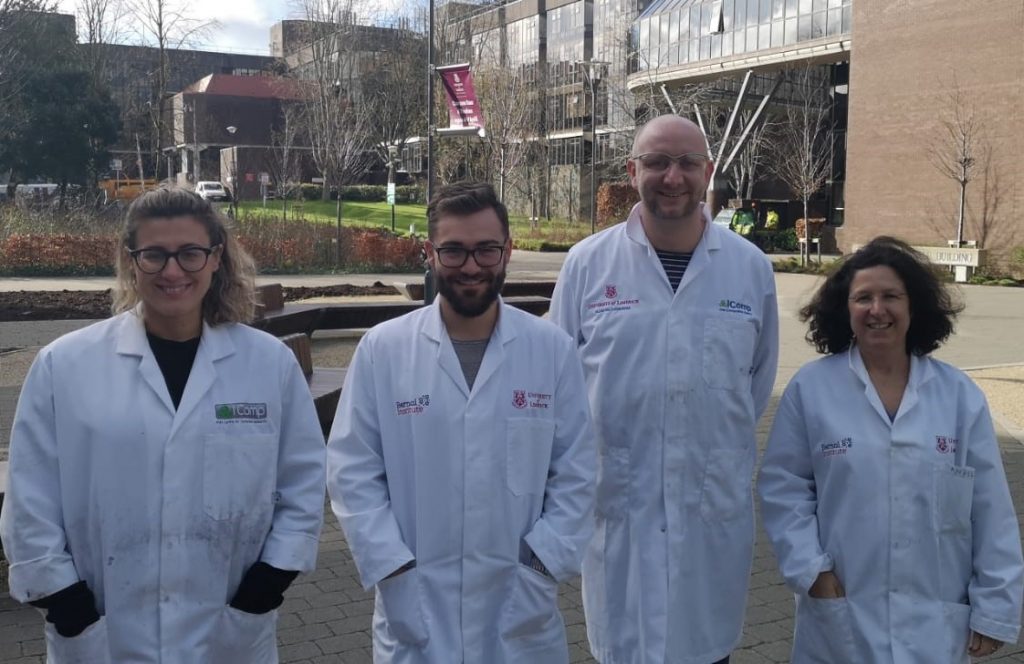In the framework of the Horizon 2020 project DRIVEN, two researchers from the LEGATO team on Computational Mechanics – Dr. Lars Beex and Marco Magliulo – have visited the Bernal Institute for 2 weeks in March, learning how to design and test complex composite structures and sharing also their knowledge in numerical simulations of fibrous materials.

The University of Luxembourg is collaborating with the University of Limerick (ULIM) and in particular with Prof. Paul Weaver and his group at the Bernal Institute, a state-of-the-art composites manufacturing laboratory (with research around the following domains – thermoclave, resin infusion, resin transfer moulding and advanced fibre placement robot). The Bernal Institute hosts the Enterprise Ireland funded Irish Composites Centre.
As the success of research projects and future collaboration also relies on a sound management and identification of further funding opportunities for research ideas, Berta Rato joined them for two days, meeting several administrators from ULIM’s Grant’s Office. She had the opportunity to exchange with the EU projects Director and Team on best practices related to the organisation of support to research: shall the administrator manage the whole life cycle of a project or delegate financial reporting? Is support to new proposals more efficient if the team is organised by research domains or by different types of programmes? Difficult to say, but interesting to think about it. An additional meeting was with the systems manager IT support, there we could show our projects database (ePAS – project announcement tool) and ACCORD (CSC data base of projects).
Finally, Berta met the Special advisor to the president on Equality – Prof. Ita Richardson. ULIM is quite advanced as regards equal opportunities, namely they have joined the Athena Swan charter, “established in 2005 to encourage and recognise commitment to advancing the careers of women in science, technology, engineering, maths and medicine (STEMM) employment in higher education and research” with promising results. In particular, Berta and Ita discussed on how to improve recruitment practices, promotion of women researchers and specific training needs.
“As a final point, it’s really great to meet personally colleagues with similar functions, to understand the different approaches to support the acquisition and management of new grants, keeping in mind equality challenges. I think the FSTC Research Facilitators team has quite some strengthens on its organisation, though of course there is always margin for improvement, but this would be a topic for another article”, comments Berta Rato.
